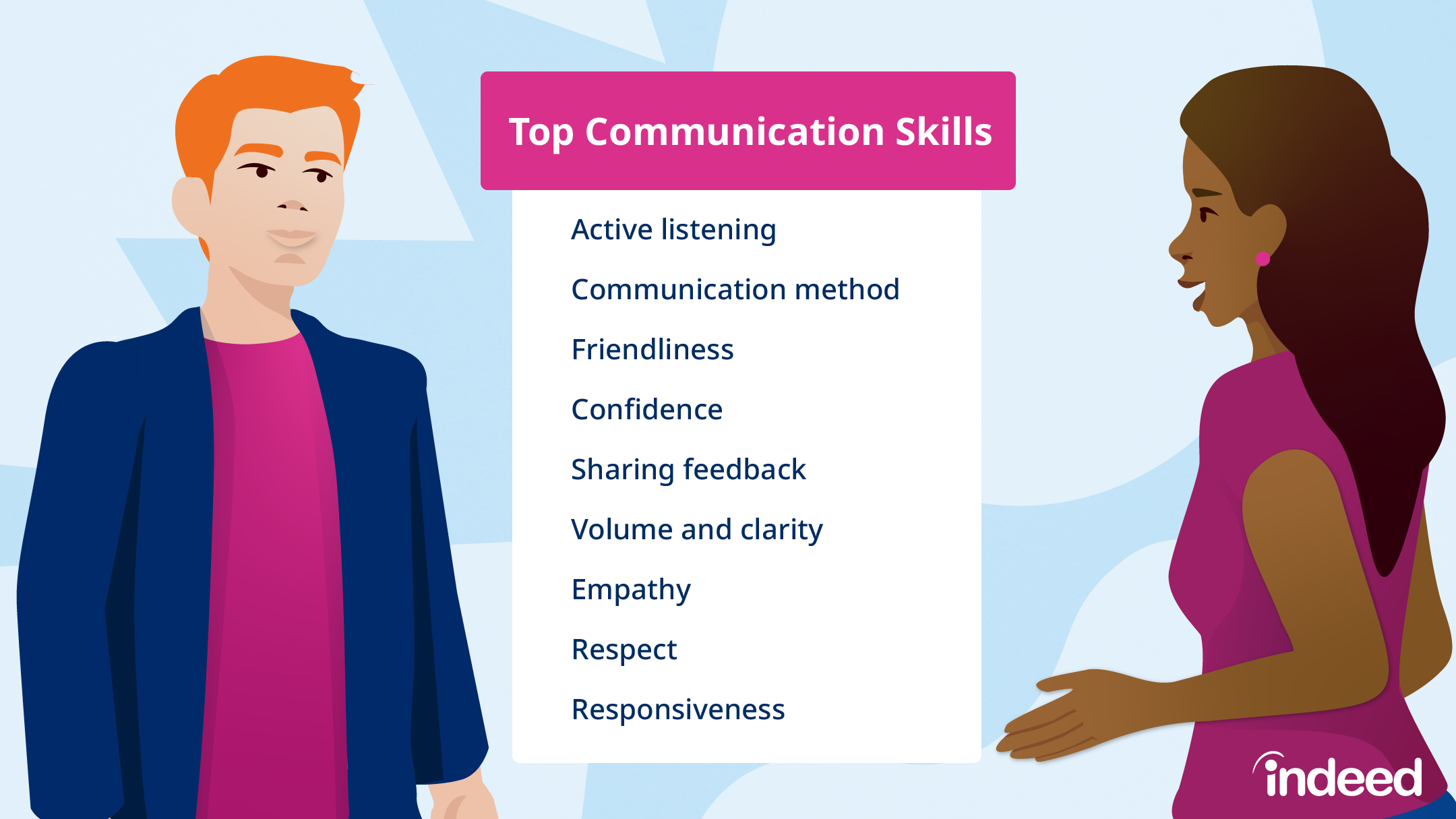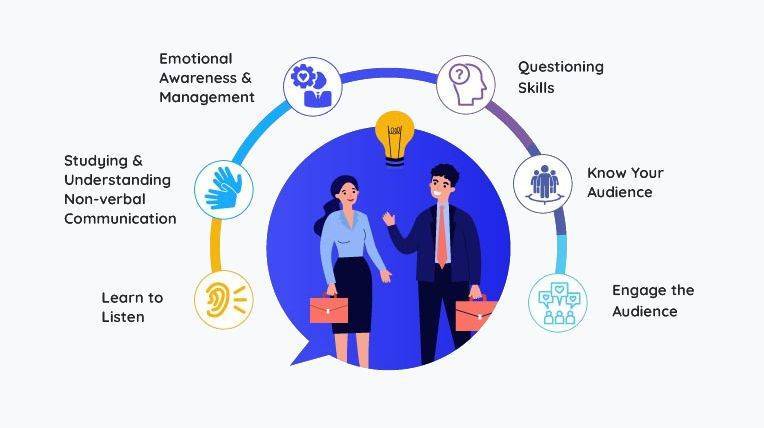Discover effective tips to improve your communication skills, including active listening, empathy, non-verbal cues, and public speaking. Mastering these skills can boost confidence and help you connect better in personal and professional settings.

1. Practice Active Listening
- Focus entirely on the speaker, show genuine interest, and avoid interrupting. Active listening builds trust and helps you respond thoughtfully. Acknowledge what’s been said by nodding, maintaining eye contact, or using verbal cues like “I see” or “I understand.”
2. Expand Your Vocabulary and Use Simple Language
- A good vocabulary lets you express ideas more clearly. Practice using precise language and avoid jargon unless it’s necessary and the audience is familiar with it. Clear communication is often about simplifying complex ideas so they’re easy to understand.
3. Practice Empathy and Emotional Intelligence
- Empathy allows you to understand the emotional context of a conversation. Being mindful of others’ feelings helps you tailor your responses and build rapport. Emotional intelligence involves recognizing and managing your own emotions, too, which can improve interactions.
4. Be Mindful of Non-Verbal Cues
- Non-verbal signals, like eye contact, gestures, posture, and facial expressions, impact how your message is received. Open and positive body language can make you appear more approachable and engaged.
5. Engage in Public Speaking or Group Discussions
- Regularly speaking in front of others, whether through presentations, debates, or group meetings, helps build confidence and reduces anxiety over time. Practicing in a low-stakes setting, like a book club or discussion group, can also be beneficial.
6. Ask for Feedback and Reflect on It
- Constructive feedback can identify areas for improvement. Whether from peers, mentors, or supervisors, feedback helps you understand how others perceive your communication and where you can adjust.
7. Practice Patience and Clarity in Written Communication
- Written communication, whether email or chat, demands patience and clarity. Avoid lengthy sentences, use bullet points if necessary, and always proofread to ensure your message is clear.
8. Learn to Manage Stress
- Stress can impede clear communication by making you feel rushed or overly emotional. Practice breathing techniques or other stress management skills to stay calm and focused in challenging conversations.

FAQs:
- What are the basic communication skills everyone should know?
- Essential skills include active listening, clarity, empathy, non-verbal communication, and the ability to give and receive feedback effectively.
- How can I become a better listener?
- Focus on the speaker without distractions, show engagement through eye contact and nodding, avoid interrupting, and ask clarifying questions when needed.
- Why is non-verbal communication important?
- Non-verbal cues like body language, eye contact, and tone of voice play a crucial role in conveying sincerity, confidence, and understanding. They can often communicate more than words.
- What role does empathy play in communication?
- Empathy helps you understand others’ perspectives and emotions, which can improve relationships and allow for more compassionate and constructive responses.
- How can I reduce nervousness when speaking in public?
- Preparation, practice, and deep breathing can help. Visualizing success and engaging with the audience can also boost confidence.
- What are some exercises to improve communication skills?
- Join public speaking groups, practice summarizing articles or books aloud, record yourself to observe body language, and engage in role-playing scenarios to build confidence.
- How can I improve my communication in written formats like emails?
- Use clear language, organize your thoughts, avoid jargon, and proofread to ensure the message is easy to understand and free of errors.
- How does emotional intelligence impact communication?
- High emotional intelligence helps you manage emotions in yourself and others, making it easier to respond calmly, resolve conflicts, and build rapport.

